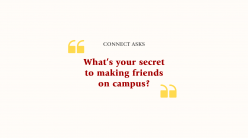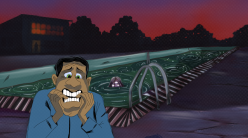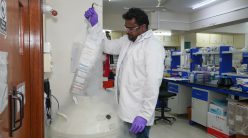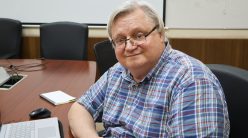Rosa John Samuel has been working at IISc for 36 years as a temporary employee. She has spent most of her time at the Primate Research Laboratory and Central Animal Facility, and has worked in various administrative and technical roles in the Division of Biological Sciences. In this piece, she recounts her experiences of growing up on the IISc campus, working at the animal facility and how she keeps busy even after all these years.
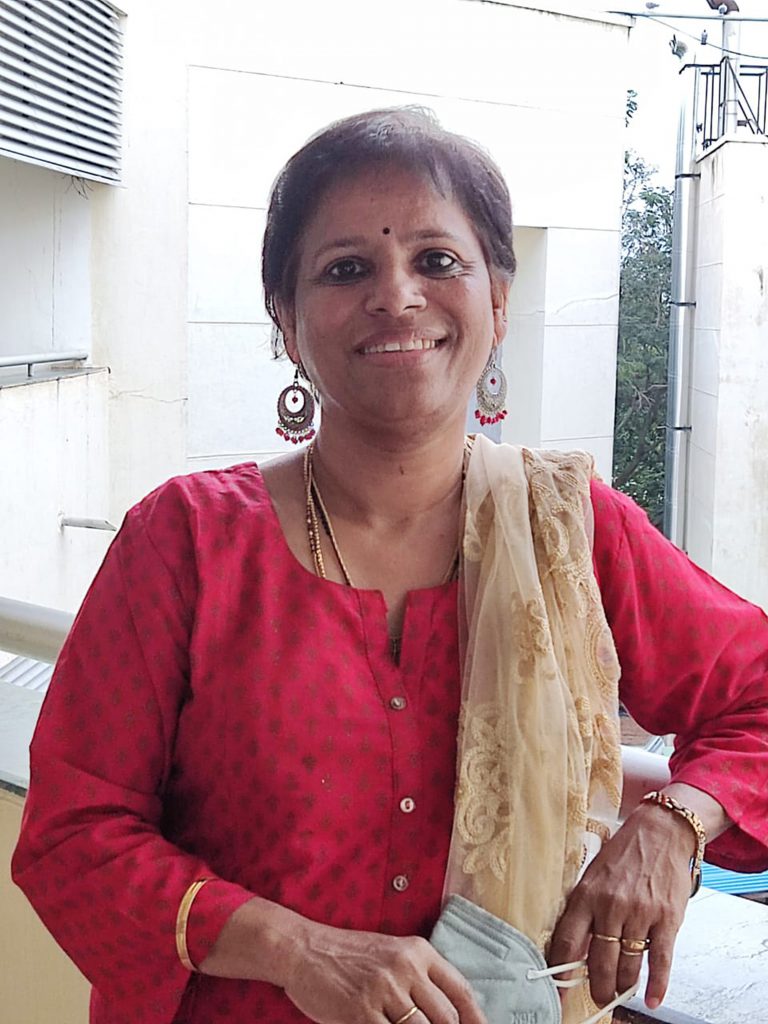
Early life
I was born in Guruvayoor, Kerala, in 1966. My father, the late PM Raphael, worked in IISc for 39 years as a mechanic at the Department of High Voltage Engineering. My mother went for her maternity to Kerala and returned to the IISc campus when I was four months old.
I remember going to my school, Kendriya Vidyalaya in Malleswaram, holding my father’s hand while crossing the roads that wound through the dense forest that was the IISc campus. Those early morning walks through the flower-laden pathways filled with birds and animals, picking flowers, eating the fruits we picked on our way to school, instilled a deep interest for the natural world in me.
Back then, we lived in the IISc staff quarters, which were tiled houses, each with a backyard, a small front yard and beautiful gardens; the bigger houses were for librarians, and the Registrar. Each house had its own garden where kids from different households would play together. We would go to watch movies as families on most Fridays at the Gymkhana. During Founder’s Day celebrations, we would perform music and dance shows on the stage in front of the Main Building.
My family ran on my father’s IISc salary and my mother’s income from tailoring. I completed my Bachelor’s degree in Chemistry, Botany and Zoology from Mount Carmel College, Bangalore, in 1987. To strengthen my job prospects, I followed the trend at that time of taking typing and shorthand classes. I also joined a computer course which was not very popular then. But when my parents’ income became insufficient to educate my brother and sister, I decided to start working instead of pursuing a Master’s degree. That’s when Balakrishnan, a friend of my father’s from the Department of Biochemistry, IISc, informed me of a lab assistant position with Prof MRS Rao. I made the decision to attend the interview the following day, after my computer class.
After qualifying for it, I started as a Laboratory Assistant with a salary of Rs 1,200, which was very good compared to the income of those in similar positions at that time. This was the first step in my journey at IISc. My father had the dream of sending at least one of his children to IISc. In a way, I am glad that his dream came true through me.
After working for a year on a project in Prof MRS Rao’s lab, I moved to Prof NR Moudgal’s lab. It was there that I saw the first Apple computer, which Prof Moudgal had purchased from the USA. We also had cutting-edge machines of that time, such as electronic typewriters.
Initially, we were in the Department of Biochemistry, and later moved to the present Primate Research Laboratory (PRL). One of the key research activities in the lab was on male contraceptive vaccines.
Interestingly, we housed around 520 monkeys for the study. I worked with Prof Moudgal for 11 years. I took care of the administrative responsibilities under the guidance of Mala, who was the first to teach me about the work involved. I had to take notes in shorthand and prepare letters on time, as Prof Moudgal was very particular that all the letters get dispatched by 3 pm on the same day. We were considered a rich lab with lots of funding – so coffee and snacks were provided. We would go for picnics once a year. Students would take us once in a while to the mess for lunch or tea. When a student completed their colloquium, submitted their thesis or published a paper, they would give us a treat. I have helped students in typing their theses, as well as organising national and international conferences and workshops. In those days, students from other labs used to approach us to request chemicals or borrow tools. However, we now have an abundance of resources, and there is no need for anyone to ask for chemicals or share materials. I have worked with multiple generations of students and staff over the years.
At the animal facility
Over the years, IISc has not only become my home, but also a nurturing environment that has provided me with opportunities for growth and fulfilment. After interacting with professors, PhD students and postdocs, my desire to continue further education, which I had to put on hold only strengthened. When Prof Moudgal retired in 1993, I moved to the Central Animal Facility (CAF) as Junior Project Assistant. By 2004, I completed my Master’s in Ecology and Environment in distance education mode from Sikkim Manipal University. Soon after that, I was promoted to the position of Project Assistant. Gradually, CAF turned into my second home.
There, I was involved in animal breeding, blood collection, administration of fluids and drugs, and immunisation of animals for scientific experiments. I took care of conventional strains of mice and rats, as well as rare ones like nude, knockout and transgenic mice. I learned that animals can become comfortable with humans but can also pose a danger. Mice may suddenly bite, which can be quite painful.
I helped in conducting several workshops on the health monitoring of lab animals for PhD students, Project Assistants and postdocs. In the meantime, I finished my MPhil in Environmental Science from The Global Open University, Nagaland in 2012 and defended my PhD in Environmental Biotechnology from Bharathidasan University, Tiruchirappalli. The Government of India, through the Committee for Control and Supervision of Experiments on Animals (CCSEA), chose me as a socially aware nominee to oversee animal experimentation in 23 different research institutes. Animal research is necessary for scientific work, so it cannot be completely eliminated. However, I believe that it is important to carefully evaluate the proposals to ensure that the experimental methods used are ethical and that there is no misuse or inhumane treatment of animals. In addition to my role in approving animal usage, I have established a network with [my counterparts] in various educational institutions.
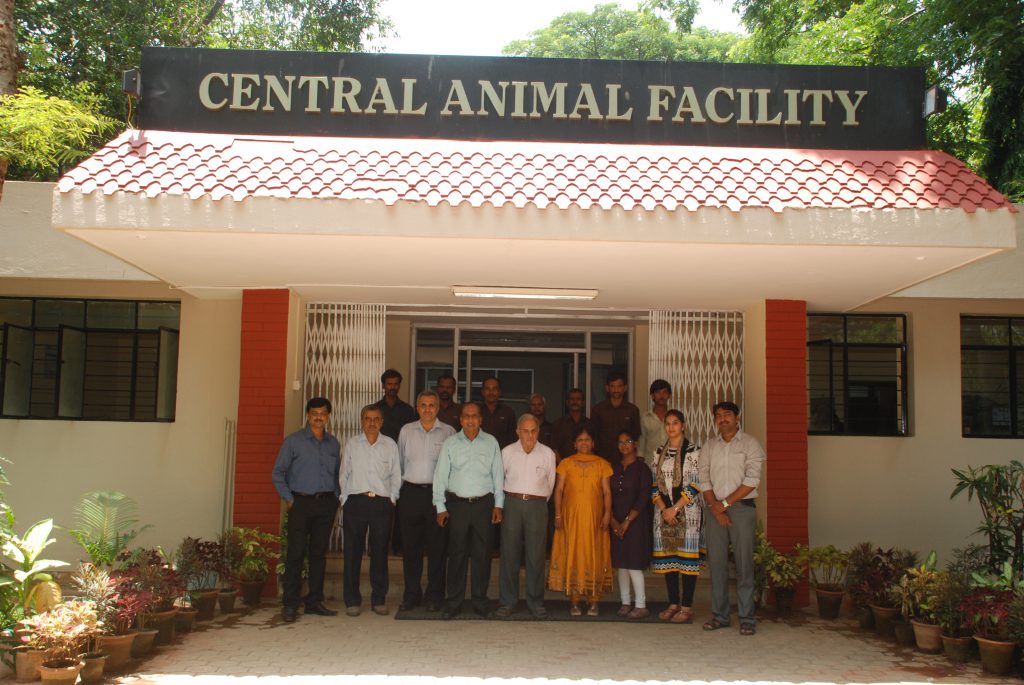
In the past, there were some unfortunate practices carried out on animals. However, the CCSEA recognised the need to stop such practices. Nowadays, we follow strict rules and regulations to ensure the ethical treatment of animals. We have made significant progress compared to the past; for example, from keeping animals in normal polycarbonate cages to using individually ventilated cages, from bedding made of paddy husk to sparcobb or wood chip, and better nutritional feed to monitor their health and prevent infections from spreading among the animals.
Almost all faculty members from the Division of Biological Sciences use animals from CAF for their research. Even though the faculty members I worked with initially have retired, I still maintain a connection with all of them. Many studies and experiments rely on the availability of animals. I made every effort to provide the animals on time and to uphold the trust they had in us. Research scholars and students would come to us every morning, requesting animals of a specific weight, age group, and breed for their studies. They would also share their experiences and discuss their problems with me. Whenever they published a paper or submitted a study report, they would come with a box of sweets as a gesture of gratitude. Things changed after the COVID-19 pandemic, but before that, every student who completed their colloquium would invite us and acknowledge the CAF in their thesis, often showing us a hard copy of their work. These gestures made us feel valued. When old students come back to visit their faculty advisors, they go out of their way to also meet us. It is these instances that made me appreciate the fact that small things make a big difference.
From October 2021 to November 2022, I was involved in supporting research as Project Manager in the Evolutionary Venomics Lab, Centre for Ecological Sciences. My other responsibilities involved managing the lab, administrative work, and coordinating with the forest departments and the National Biodiversity Authority to obtain necessary permits, working along with students. I also helped in setting up an antibody facility.
A sense of community
I have solid relationships with many people from different departments and maintain a large network of contacts with whom I make an effort to keep in touch. I take it upon myself to ensure that they don’t feel neglected. I frequently arrange meetings among staff members who have been part of IISc for a long time, and live close to each other. Many of these individuals, who were once colleagues of mine, find themselves living alone. We often gather at the Nesara restaurant in IISc to enjoy a cup of coffee or engage in conversation. Additionally, I try to call retired individuals whenever I have some free time, to share updates and stay connected. Maintaining these relationships and demonstrating support to the individuals who have been part of my journey here is important to me.
Currently, I work as a Consultant at the DST-Centre for Policy Research (DST-CPR) at IISc. In August 2023, I completed 36 years of service in IISc as a temporary staff member even though my personal connection with IISc dates back to my childhood days. Though I couldn’t secure a permanent job at IISc, I never felt I was not in the system or treated differently. I was able to complete my education, and fulfil my dream of pursuing my PhD in Environmental Biotechnology, with help from several faculty members and students, while working at IISc. I received a Young Investigator award for a poster I presented at the 4th Asian Federation of Laboratory Animal Science Associations Congress (2010), held in Taipei, Taiwan, and the Best Poster Award at the 8th Asian Federation of Laboratory Animal Science Associations Congress (2018), held in Bangalore. I was able to support both my sister – now a Senior Scientist working in Texas, USA – and my brother, who is a Vice President at an IT company in New York, USA, and also help my daughter pursue a medical course in Canada.
In retrospect, I am grateful for the way IISc and its landscape have woven themselves into my life, as reflected in my favourite verse from Robert Frost’s poem:
The woods are lovely, dark and deep,
But I have promises to keep
Miles to go before I sleep
Miles to go before I sleep
As told to Malavika P Pillai
